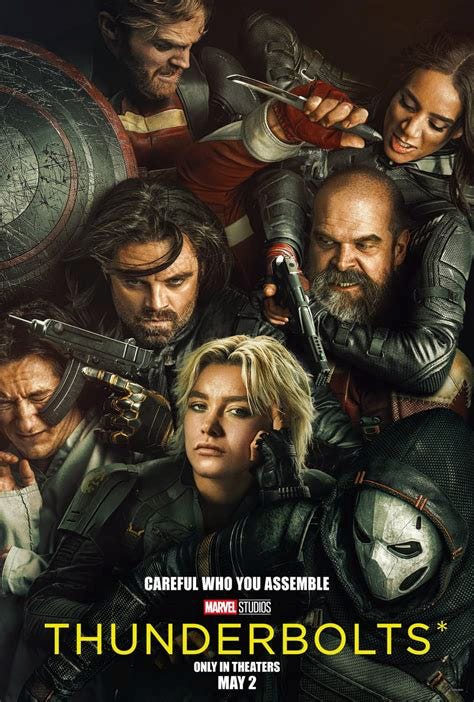⭐️⭐️⭐️⭐️⭐️ Thunderbolts* Movie Review
Sometimes the way forward is through the pain, not around it.
⭐️⭐️⭐️⭐️⭐️ Thunderbolts* Movie Review
Sometimes the way forward is through the pain, not around it.
I didn’t expect to care this much.
Going into Thunderbolts*, I knew the roster: a mix of morally gray, underused, or underdeveloped characters from previous MCU films and Disney+ series. Frankly, I wasn’t emotionally invested in many of them. But this film changed that.
It gave them dimension, and it did so with surprising tenderness.
The film takes its time, unafraid to let silence speak, to let characters break rather than just break things. It weaves together themes of mental health, trauma, regret, and childhood wounds in a way that feels both honest and rare for a genre that often chooses bravado over vulnerability.
Each character is carrying more than what’s on the surface. But what makes this story so compelling is how these characters learn to enter each other’s sorrow. There’s something sacred in that, watching people who have been trained to survive finally learning how to live.
To feel. To heal. Not alone, but together.
There’s a kind of liturgy to the way the film unfolds. A movement from isolation to connection. From numbness to tenderness. From fear to trust. It doesn’t tie everything up with a bow, but it does suggest that healing happens in proximity, when someone chooses to sit with you in the pain, rather than try to erase it.
And that’s where the film shines most: in its characters.
Yelena Belova (Black Widow, Hawkeye) still carries her razor-sharp sarcasm, but here we see the grief she hides beneath it, and how much she fears falling into the void.
Bucky Barnes (Captain America, Falcon and the Winter Soldier) quietly anchors the team. His trauma isn’t just backstory—it’s present-tense, and this time, he’s not just managing it. He’s learning to trust again. And he is a politician.
Red Guardian (Black Widow), once comic relief, is now a man trying (and often failing) to reclaim purpose and dignity, with surprising moments of heartfelt reflection.
Ghost (Ant-Man and the Wasp) gets her most honest and human portrayal yet. Her pain is raw, but she’s finally allowed space to name it.
John Walker, the flawed and deeply conflicted U.S. Agent (Falcon and the Winter Soldier), is still wrestling with what heroism actually is, and the film doesn’t give him an easy answer.
What’s remarkable is that I left the theater caring about each of them—some for the first time. That’s no small feat.
Sometimes the way forward is through the pain, not around it.
The writing deserves praise. Thunderbolts* manages to hold humor and heaviness in the same breath. It’s funny - really funny at times, but the jokes never undercut the emotional weight. If anything, the humor becomes a survival instinct, a defense mechanism, a way for characters to shield themselves from wounds too deep to name.
And the lines of meaning in this film—wow. There are quotes about purpose, goodness, guilt, evil, and the fragile line between survival and morality that hit hard without ever sounding preachy. And yes, there is even a Søren Kierkegaard quote in the movie:
This film doesn’t reinvent the genre, but it does redeem it a little—reminding us that:
Stories of superhuman strength are most compelling when they show human vulnerability.
Thunderbolts* isn’t just a team-up. It’s a breakdown and rebuild.
A group of loners, liars, and lost souls step into each other’s sorrow, and somehow, slowly, begin to become more whole. That kind of story sticks with you.






